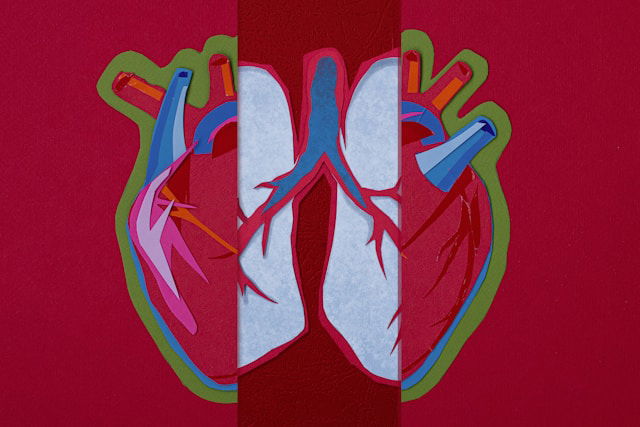
People with heart failure often take several medicines to help their heart work better and prevent serious problems.
Heart failure means the heart cannot pump blood as well as it should. Some patients may feel better over time and even show improved heart function, which can be seen in a test called ejection fraction.
This test measures how much blood the heart pumps out with each beat. If this number rises from below 40 percent to 40 percent or more, it is usually seen as a good sign.
But a new study from Karolinska Institutet in Sweden shows that even if patients seem to recover, they should not stop taking their heart medications. The research was published in the journal Circulation and included over 8,700 people who had been treated for heart failure.
The researchers found that those who stopped taking certain heart failure drugs had a much higher chance of dying or ending up in the hospital again within a year.
The study looked at real-life data from the Swedish Heart Failure Registry, also known as RiksSvikt. This registry contains information about people diagnosed with heart failure across Sweden.
Researchers combined this data with other national records to track patients who either continued or stopped taking their medication.
They focused on drugs like RASi (renin-angiotensin system inhibitors), ARNi (angiotensin receptor-neprilysin inhibitors), and MRA (mineralocorticoid receptor antagonists). These are common medicines used to help manage heart failure.
The results showed that stopping any of these three types of drugs raised the risk of heart-related death or hospitalization by about 36 to 38 percent within a year.
That’s a big difference. Interestingly, stopping beta-blockers—a different kind of heart medicine—only increased the risk in patients whose heart function had not improved much. For patients with strong recovery, beta-blockers did not seem to raise their risk by a large amount.
Dr. Gianluigi Savarese, the senior author of the study and a heart doctor at Karolinska Institutet, explained that these findings show how important it is to keep taking heart failure medication even after feeling better. He said doctors should be careful not to stop treatments too early just because symptoms go away or tests look better.
However, the researchers also said more studies are needed. This study was observational, meaning it looked at past data rather than running a new experiment. So it’s possible that other factors influenced the results. The team is planning more research to find out if and when it might be safe for some people to stop certain heart medicines.
Christian Basile, the first author and a PhD student, said their goal is to better understand how heart failure treatments affect people whose heart function has improved. They want to develop clearer rules for when it might be okay to stop some treatments. This could help doctors create more personalized and effective treatment plans for each patient.
In summary, the study warns patients and doctors not to stop important heart failure drugs too soon. Even when the heart seems to get better, the risk of serious problems may still be high if medications are stopped. Continued use of heart medications appears to give long-term protection.
If you care about heart health, please read studies about how eating eggs can help reduce heart disease risk, and herbal supplements could harm your heart rhythm.
For more health information, please see recent studies about how drinking milk affects risks of heart disease and cancer, and results showing strawberries could help prevent Alzheimer’s disease.
Copyright © 2025 Knowridge Science Report. All rights reserved.



